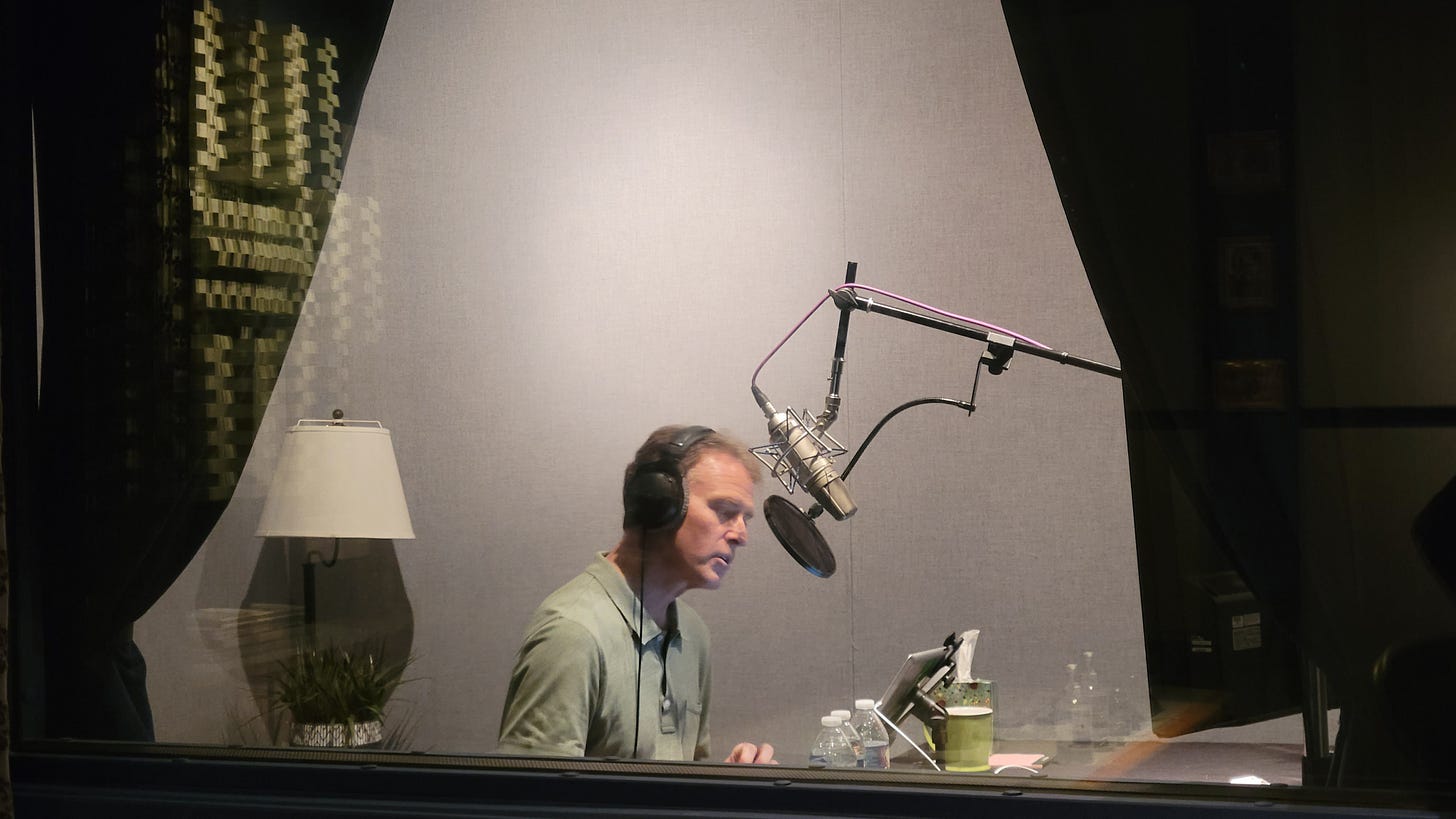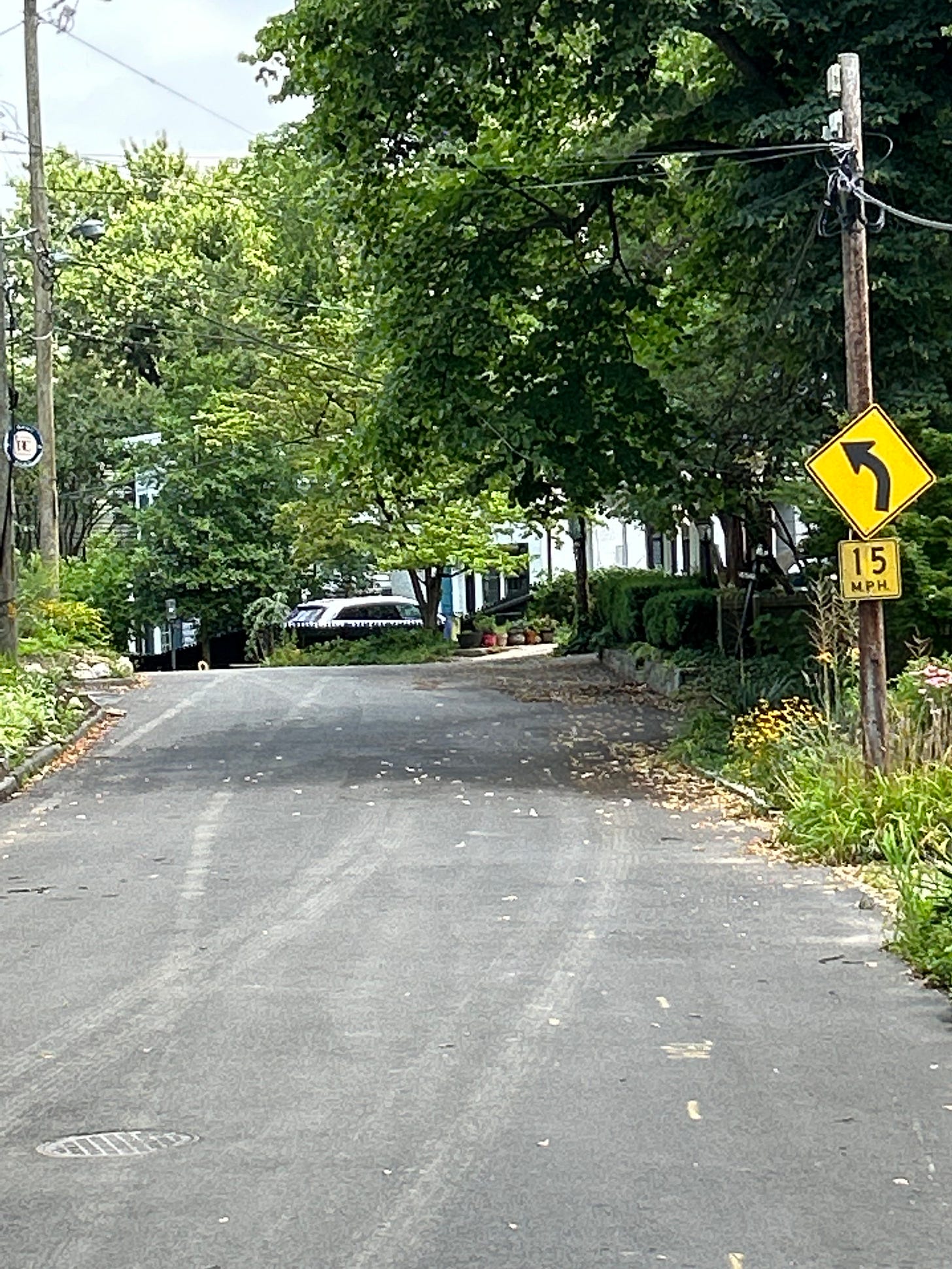Differ We Must
It's still Lincoln's capital. Can we run it as he did?
I recorded the audio book of Differ We Must during the holiday week. It was a fine time to do it. The night before we started was July 4, and I sat with friends and family on our backyard deck, watching fireworks explode in surrounding neighborhoods.
Recording took portions of the next three days, which were quiet days in Washington, D.C. It’s a time of rain forest weather—hot and humid air that finally spills over into a rainstorm many days, like an overflowing bucket. Thunder cracked, so I am told, though I never heard it inside Clean Cuts, a business that maintains a suite of soundproofed studios.
Photo: Carter Martin
This is the time of a lull in Washington, when the streets have little traffic and the city feels the way a beach community would in late fall. Congress is on recess; the lawmakers are absent, their staff scattered. Lawyers, lobbyists and think-tankers who work to influence them are likely elsewhere too—as is much of the wider capital’s elite, the prosperous and successful who summer on Martha’s Vineyard, or attend conferences in Aspen, or travel in Europe. The national security establishment is at work, of course, and someone is monitoring the global markets inside the great fortress of a building that is the Federal Reserve. For all we know some crisis may be brewing in the Situation Room at the White House, but there’s no sign of it in the news or among the tourists at the Lincoln Memorial.
For all that has changed since the 1860’s, this is still Lincoln’s capital. When I finished recording the book I decided to walk for a while, and encountered a street I’d never seen, a winding one that seemed like a country road and did not match up with the surrounding street grid. I learned that the street was older than the grid in that neighborhood. In the 1800’s, this area was mostly farmland, and the winding street was the location of a small settlement called Tennallytown, which existed in Lincoln’s time. Just up the street was Fort Reno, one of the defenses built in the 1860’s during the Civil War. The street eventually was named Grant Road, after Lincoln’s most successful general.
It is his capital in more substantive ways, too. Lincoln oversaw a vast expansion in the size and power of the federal government, as was necessary to fight the war and keep the country together.
During the summer months of his presidency, Lincoln’s family left the White House. It was intolerably hot and humid by the marshy banks of the Potomac, so they lived in a house on the breezy grounds of the Old Soldiers’ Home, which was several miles away from the river and several hundred feet uphill. (The Lincoln Cottage, as it’s called, still exists as a tourist site.) The president commuted downhill each day on horseback. A group of soldiers rode with him.
One of the scenes of Differ We Must takes place on just such a summer day: he rode down from the Soldiers’ Home to attend a series of meetings, and one of his visitors was Frederick Douglass. It was 1863. The Emancipation Proclamation had freed many Black men who enlisted as soldiers; and Douglass came to complain of the unequal terms of their enlistment.
The book tells Lincoln’s life story through sixteen meetings such as this—meetings with people who differed with him. They differed in race, gender, religion, education, economic background and above all in opinion: many disagreed with Lincoln or he with them.
Then as now, it was a big diverse republic, home to many points of view. Lincoln’s challenge was uniting enough of those people behind a single cause. To do that, he had to work with people he believed to be wrong—not always make allies of them, but at least get some use out of them. And if some, like Douglass, felt Lincoln was not progressive enough, there were others who found Lincoln far too radical. People thought he was wrong to oppose slavery, or that he was taking the wrong approach, or that he was far too friendly with immigrants. Lincoln had to reckon with some of them.
The modern applications of this skill hardly need to be said. If the United States is to remain a democracy, its leaders have to assemble majorities in favor of progress. To do that, they will have to get some value out of citizens who hold views they disagree with. That’s the necessary skill for addressing almost any challenge the republic faces—immigration, income inequality, economic opportunity, policing, corruption, the challenge of China, climate change.
So how did Lincoln do it? That question came to animate my research for Differ We Must. The book greatly clarified my own understanding of how Lincoln rose to power, preserved the country and took part in a social revolution. Hoping to preserve that clarity, I kept the book relatively brief. It didn’t take all that many hours to read its 262 pages of text aloud. (Lincoln as a subject is so absorbing that many of his biographers haven’t stopped at a single volume, often filling two, four, six, or, in at least one case, ten.)
If you’re intrigued, I hope you’ll consider buying it when it comes out October 3. And if you’ve resolved that you will pick up a copy, you’re invited to preorder. You will support the book. If you’re not in a position to buy that’s also fine! It will be in many libraries; and you also may subscribe for this regular email, which will remain free in almost every case. We’ll continue exploring the modern versions of problems Lincoln faced. Thanks for reading.




I hope Mary Louise Kelly or Scott Simon will interview you on NPR about your book when it comes out. Can’t wait to read it!
I’m happy to preorder your book, Steve, but I have a local bookstore I support. Is is possible to preorder through independent bookstores vs Amazon?